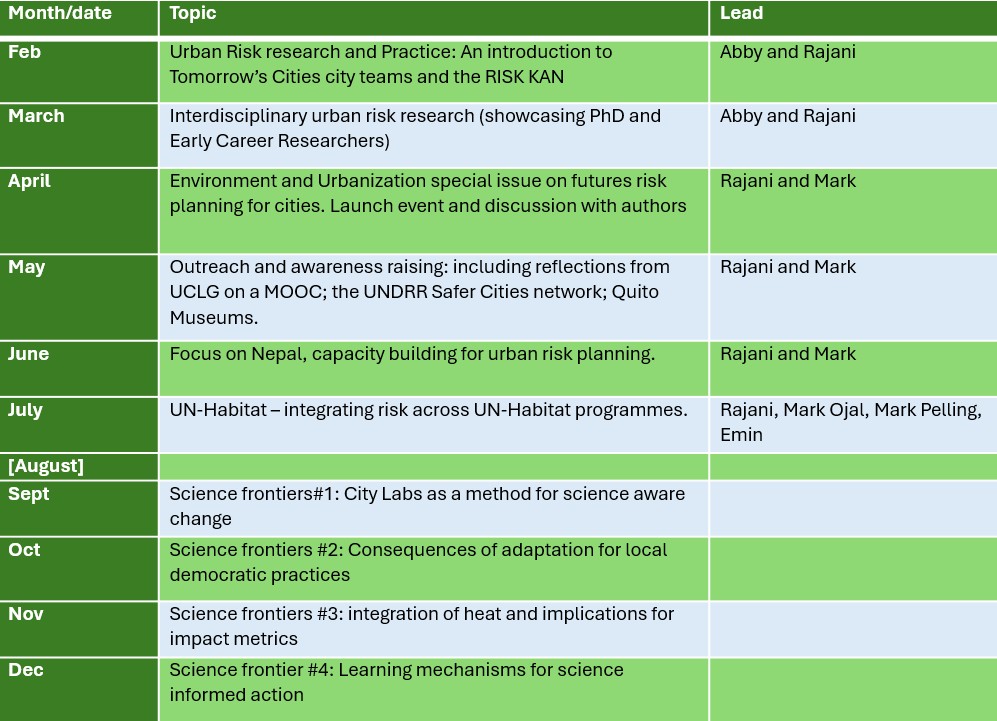
- Close
Tomorrow’s Cities Community of Practice
Upcoming event:
Webinar 1: Urban Risk Research and Practice
Date: 25 February
Convened by Dr Abby Ewen, University College London, UK
The first session of the Tomorrows Cities Community of Practice Webinar Series uses findings from the Tomorrow’s Cities Impact Monitoring process (2024) as an entry point to discuss the challenges and opportunities in facilitating multi-hazard, risk-informed planning and decision-making in large co-produced projects. It recognizes that a projects contributions are unpredictable and continually shaped by internal and external factors that influence how projects evolve and the contributions they can make. Through perspectives from city representatives, the session will examine the key constraints, challenges, and pathways to overcome them. For the first time, it will bring together the Tomorrow’s Cities community of practice and the RISK-KAN network on cities and infrastructure both transdisciplinary networks focused on complex urban environments and reducing risk. This will serve as an opportunity to exchange experiences, learn from practice, and strengthen collaboration.
Webinar Draft Schedule

The Tomorrows Cities Community of Practice (TC CoP) is open to all. We bring together city planners, national urban and risk management professionals, community leaders and researchers. The TC CoP supports:
1. The uptake of inclusive, risk sensitive urban planning tools
2. The development of science, tools, and approach, and
3. Expanding the international peer network of Tomorrow’s Cities collaborators and partners.
The TC CoP meets at least four times a year, and these meetings are an opportunity to share progress and information and form new collaborations with practitioners, communities, policy makers and experts. There are themed meetings, guest lectures, workshops and conferences.
Members give their time on a voluntary basis. The TC CoP is not a funded project or service, although it may help TC CoP members, form funded collaborations, projects, and activities amongst themselves.
The Tomorrow’s Cities Community of Practice is a meeting place for people with an interest in, and commitment to, growing Tomorrows Cities ethos and practice.
If you would like to join the TCCoP, please follow the green button at the top of this page and fill in the form. We will send you details of upcoming meetings, and an invite for the next meeting. TC news, and details of upcoming meetings and events will also be posted on this page.
The TC COP commits to be an inclusive community of practice with balanced representation across its membership reflecting a wide range of roles, age, gender, geography, career stage, institution, and disciplinary area. The Mission Statement is here and details the TCCoP Governance arrangements. The TCCoP has a rotating Chair drawn from City Teams and the international network of TC collaborators and partners, and a Steering Group who plan and organise the TCCoP events. If you would like to be involved, please let us know by emailing at tc_cop@nset.org.np.
Activities

